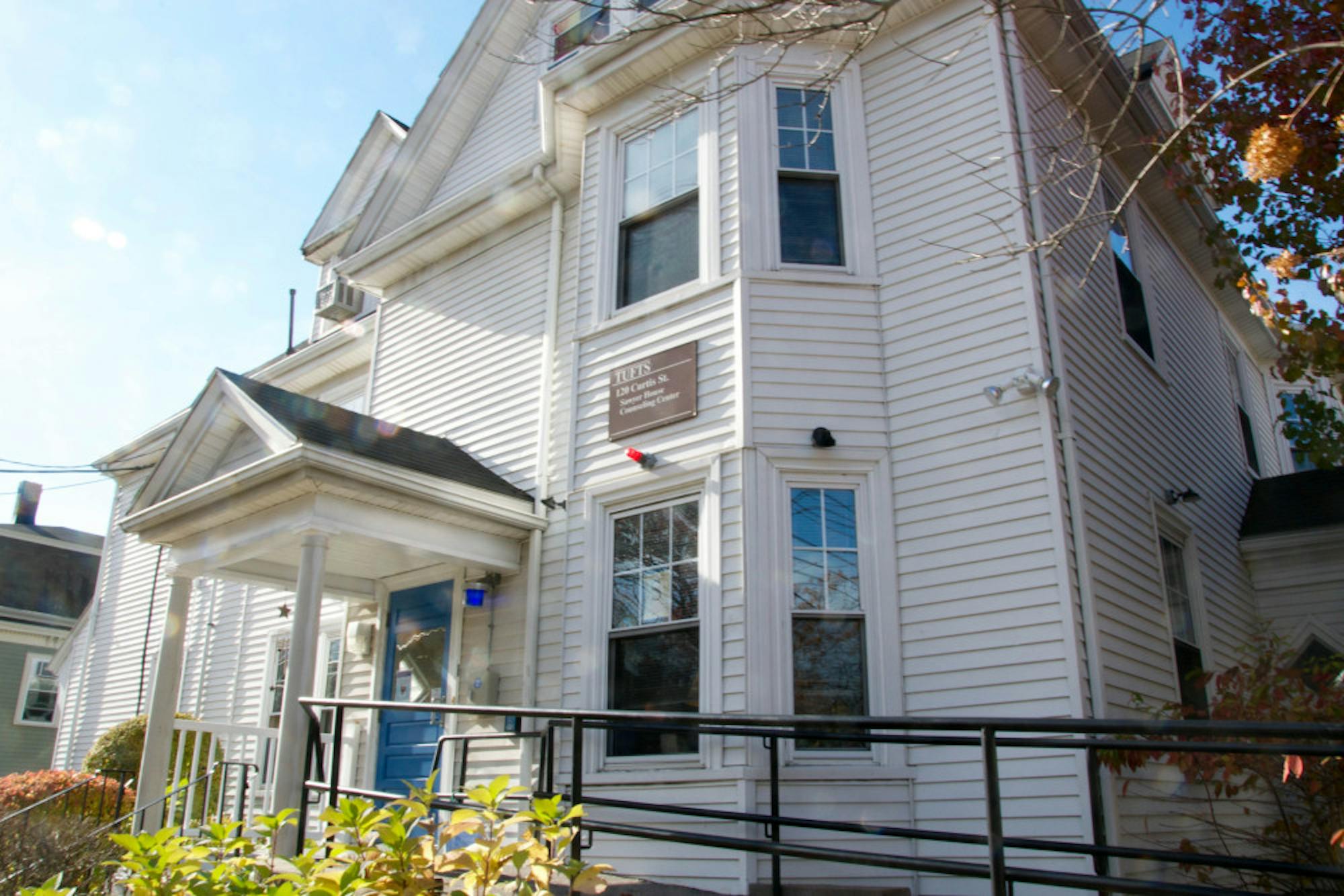Tufts’ Mental Health Task Force, formed by University President Anthony Monaco last semester, has begun to conduct listening sessions with student organizations to collect input on student mental health.
The task force is charged with reviewing the state of mental health for students on all Tufts campuses, examining the successes and limitations of the university's mental health resources and offering policy and outreach recommendations, according to the Office of the President's website.
“The goal of the listening sessions is to engage students in a dialogue to gain a better understanding of the needs, concerns and potential solutions to strengthening student mental health at Tufts,” Jacklyn Varela, communications and project administrator of the Office of the President, told the Daily in an email.
The first listening sessions started this month, and Varela explained that the task force plans to continue them into the next school year.
“We very much see these listening sessions as the beginning of a dialogue and look forward to continuing these conversations into the fall,” she said.
Senior Associate Dean of Student Affairs Raymond Ou, who co-chairs the task force's working group on undergraduate students, explained that the listening sessions are a way for the task force to gain information on how to best achieve the group’s charge and purpose.
“Understanding the student experience, needs and concerns is vital to our ability to make informed decisions. Emerging themes will help the working group prioritize its work over the summer,” Ou told the Daily in an email.
Varela explained that, in a listening session, she and a member of the working group typically attend to introduce students to the task force's role, facilitate the conversation and take notes. Sessions are organized as an opportunity for students to share their thoughts.
"We have a list of prepared questions, but so far we have found these sessions tend to flow organically and cover a range of intersecting issues. For us, it’s really about listening,” Varela wrote.
Sophomore William McKenna serves as an undergraduate representative on the working group that focuses on undergraduate students. McKenna, who is a member of the executive board of Active Minds at Tufts, works as a liaison between students and administrators.
The listening sessions will be held with different groups and spaces on campus, including the Asian American Center, Africana Center and Latino Center, in the hopes of hearing the many voices of the Tufts community, according to McKenna.
“Our goal is to go to many diverse populations within the Tufts community, because different parts of your identity will affect your experience with mental health, your experience within Tufts and your attitude towards resources,” McKenna said.
The listening sessions further attempt to gather information about what barriers certain groups within the school feel in relation to accessing Counseling and Mental Health Services as well as stories they’ve heard from other students and their beliefs about the school’s policies, according to McKenna.
McKenna added that open panels are also being held for all students to attend, but he described how it can be hard to attract a large turnout.
“I think a hard part about it is getting people to learn about these open meetings," he said. "The whole barrier of having people [be] aware of these sessions is an issue within itself, but that’s something that we have acknowledged as the task force."
McKenna further noted that there is a website where members of the Tufts community can share their own experiences anonymously to the task force.
“That’s important because a hard part about going to these conference meetings is that you’re a face associated to a story, and you might not feel comfortable associating with your story yet,” he said.
Jennifer Stephan, associate dean of undergraduate advising to the School of Engineering and co-chair of the working group focused on undergraduates, explained that the task force hopes to use the information it collects to understand students' concerns and experiences about mental health.
“We’re planning to use the qualitative data that we collect through these sessions to help us gain a better understanding of our students’ experience using and accessing the range of services available and identifying barriers and gaps along the way," Stephan told the Daily in an email. "We are also eager to better understand, in the most holistic sense, Tufts' culture and how it may mitigate or exacerbate student mental health."
Stephan further explained that the task force’s goal is to make preliminary recommendations next fall, in part by using the information it learns from the listening sessions.
“We have been asked to provide recommendations in three areas: (1) education, outreach and mental health promotion, (2) services and resources and (3) policies and practices,” Stephan said.
Varela described how the task force will continue working to achieve its goals and what it has planned next.
“Next, we’d like to engage faculty and staff in a similar fashion. Over the summer, our plans are to really dig deep into fulfilling the work laid out in the charge,” she said.
Listening sessions held to gather information on student mental health

Counseling and Mental Health Services is located at the corner of Curtis Street and Curtis Avenue.





